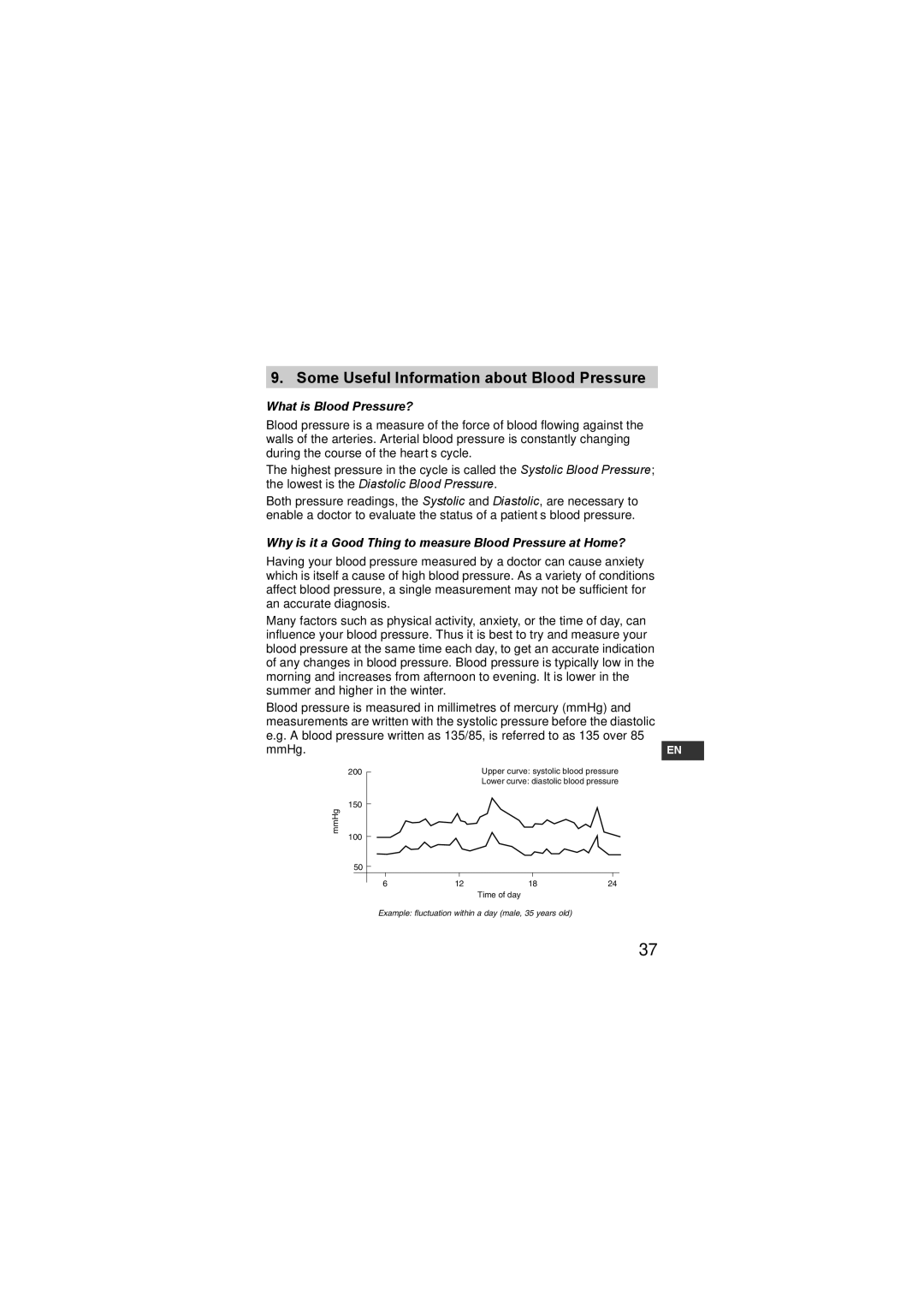
9.Some Useful Information about Blood Pressure
9. Some Useful Information about Blood Pressure
What is Blood Pressure?
Blood pressure is a measure of the force of blood flowing against the walls of the arteries. Arterial blood pressure is constantly changing during the course of the heart’s cycle.
The highest pressure in the cycle is called the Systolic Blood Pressure; the lowest is the Diastolic Blood Pressure.
Both pressure readings, the Systolic and Diastolic, are necessary to enable a doctor to evaluate the status of a patient’s blood pressure.
Why is it a Good Thing to measure Blood Pressure at Home?
Having your blood pressure measured by a doctor can cause anxiety which is itself a cause of high blood pressure. As a variety of conditions affect blood pressure, a single measurement may not be sufficient for an accurate diagnosis.
Many factors such as physical activity, anxiety, or the time of day, can influence your blood pressure. Thus it is best to try and measure your blood pressure at the same time each day, to get an accurate indication of any changes in blood pressure. Blood pressure is typically low in the morning and increases from afternoon to evening. It is lower in the summer and higher in the winter.
Blood pressure is measured in millimetres of mercury (mmHg) and measurements are written with the systolic pressure before the diastolic e.g. A blood pressure written as 135/85, is referred to as 135 over 85 mmHg.
200 |
| Upper curve: systolic blood pressure | |
|
| Lower curve: diastolic blood pressure | |
150 |
|
|
|
mmHg |
|
|
|
100 |
|
|
|
50 |
|
|
|
6 | 12 | 18 | 24 |
Time of day
Example: fluctuation within a day (male, 35 years old)
EN
37
